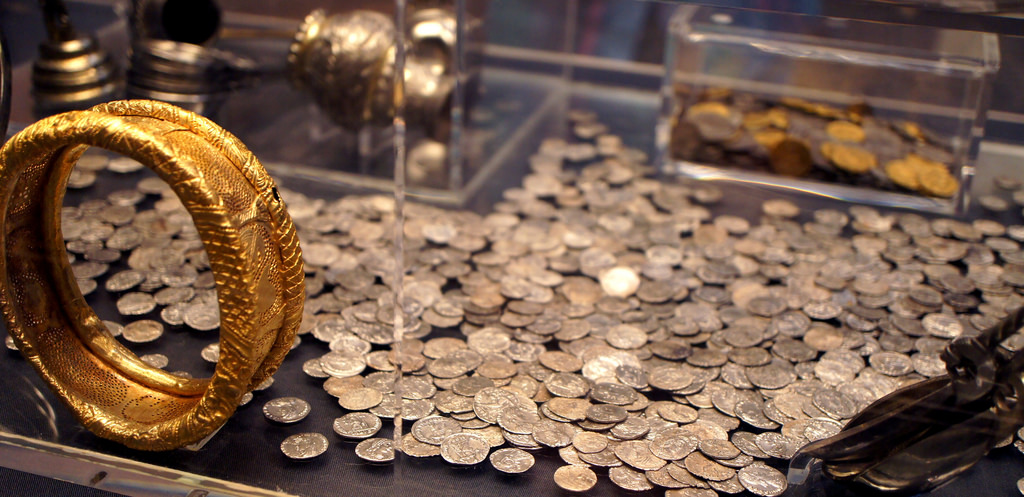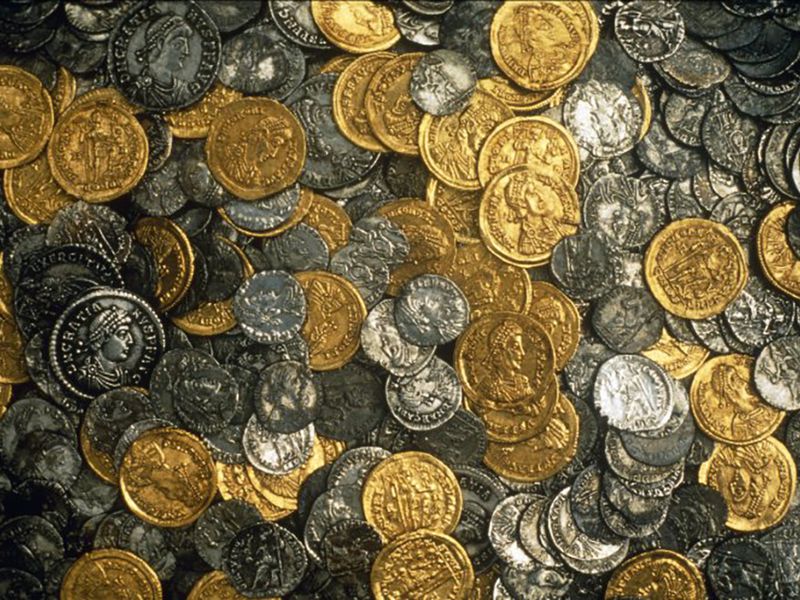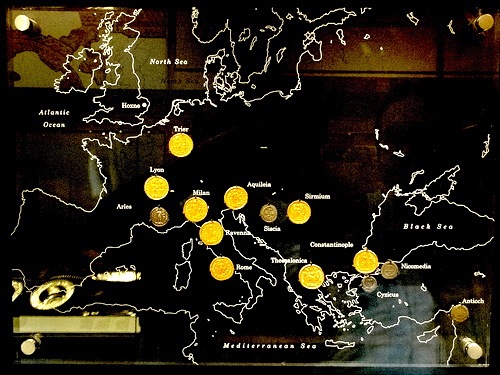
Huge Treasure!

The whole treasure which the team found underground was filled with 15,234 Roman coins, dozens of silver spoons, and 200 objects of gold. The whole treasure weighed almost 60 pounds! Eric who wasn’t expecting anything from it in the first place was rewarded for his efforts. And he didn’t touch the discovery and left it for the experts to handle, he received £1.75 million! But if you think this is the end of the story then you are wrong because it was just a start.
Eric Was Good Man

We can all agree to the fact, if that farmer wouldn’t have asked Eric to locate his missing hammer he wouldn’t have found the treasure in the first place. And Eric kept his promise and made sure he finds the hammer this time. He went back to the site and located the hammer. He kept his promise and found that one thing farmer loved the most.
The Hammer!

Eric also split the reward he received from the government with the farmer. Eric believed that it was all destiny that brought him and the farmer together that led to this discovery that changed their lives forever. But did you know that the hammer didn’t go back to the owner? Then where did it go? It was put up on display beside the treasure. Amazing right? But what did they find out about the treasure?
The Largest Hoard In Britain

According to Rachel Wilkinson who was the British Museum’s project curator for the Romano-British collections, this treasure was given a name and it was called as the “Hoxne Hoard” and was “the largest and latest ever found in Britain.” The artifacts found inside the treasure are now on display at the British Museum, and still, after 27 years of the discovery, these scientists keep finding new information about its history and origin.
The Hoxne Hoard

The Hoxne Hoard belonged to 410 A.D when the separation between the Roman Empire and Britain took place, made several historians really interested in this particular discovery. Peter Guest even wrote a book about this Hoxne treasure and in his book he wrote, “The years from the later fourth century to 450, the period including the British hoarding peak, witnessed numerous invasions into the Empire by Germanic and Hunnic groups often followed by largescale devastation and disruption.”
Hoarding And Burying The Treasures

The Romano-British citizens who didn’t come under the shade of the Roman Empire started burying their valuable treasure in the nearby areas. The wanted to save their possessions from the regular loot by the Saxons, Angles, and others. An Anglo-Saxon Chronicle dictates the era of the 9th century, “the Romans collected all the treasures which were in Britain and hid some in the earth.”
